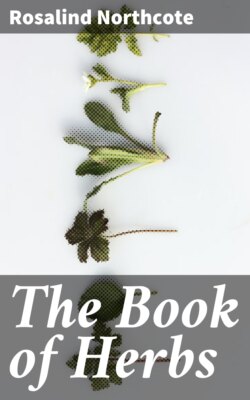Читать книгу The Book of Herbs - Rosalind Northcote - Страница 22
На сайте Литреса книга снята с продажи.
Dill (Anethum graveolens).
ОглавлениеTable of Contents
The nightshade strews to work him ill,
Therewith her vervain and her dill.
Nymphidia.—Drayton.
Here holy vervayne and here dill,
’Gainst witchcraft much availing,
The Muses Elysium.
The wonder-working dill he gets not far from these.
Polyolbion. Song xiii.
Dill is supposed to have been derived from a Norse word “to dull,” because the seeds were given to babies to make them sleep. Beyond this innocent employment it was a factor in working spells of the blackest magic! Dill is a graceful, umbelliferous plant—not at all suggestive of Dr. Jekyll and Mr. Hyde—and the seeds resemble caraway seeds in flavour, but are smaller, flatter and lighter. There is something mysterious about it, because, besides being employed in spells by witches and wizards, it was used by other people to resist spells cast by traffickers in magic, and was equally powerful to do this! Dill is very like fennel, but the leaves are shorter, smaller, and of a “stronger and quicker taste. The leaves are used with Fish, though too strong for everyone’s taste, and if added to ‘pickled Cowcumbers’ it ‘gives the cold fruit a pretty, spicie taste.’ ” Evelyn also praises ‘Gerckens muriated’ with the seeds of Dill, and Addison writes: “I am always pleased with that particular time of the year which is proper for the pickling of dill and cucumbers, but, alas! his cry, like the song of the nightingale, is not heard above two months.”[22]
[22] Spectator, xxv. 1.
